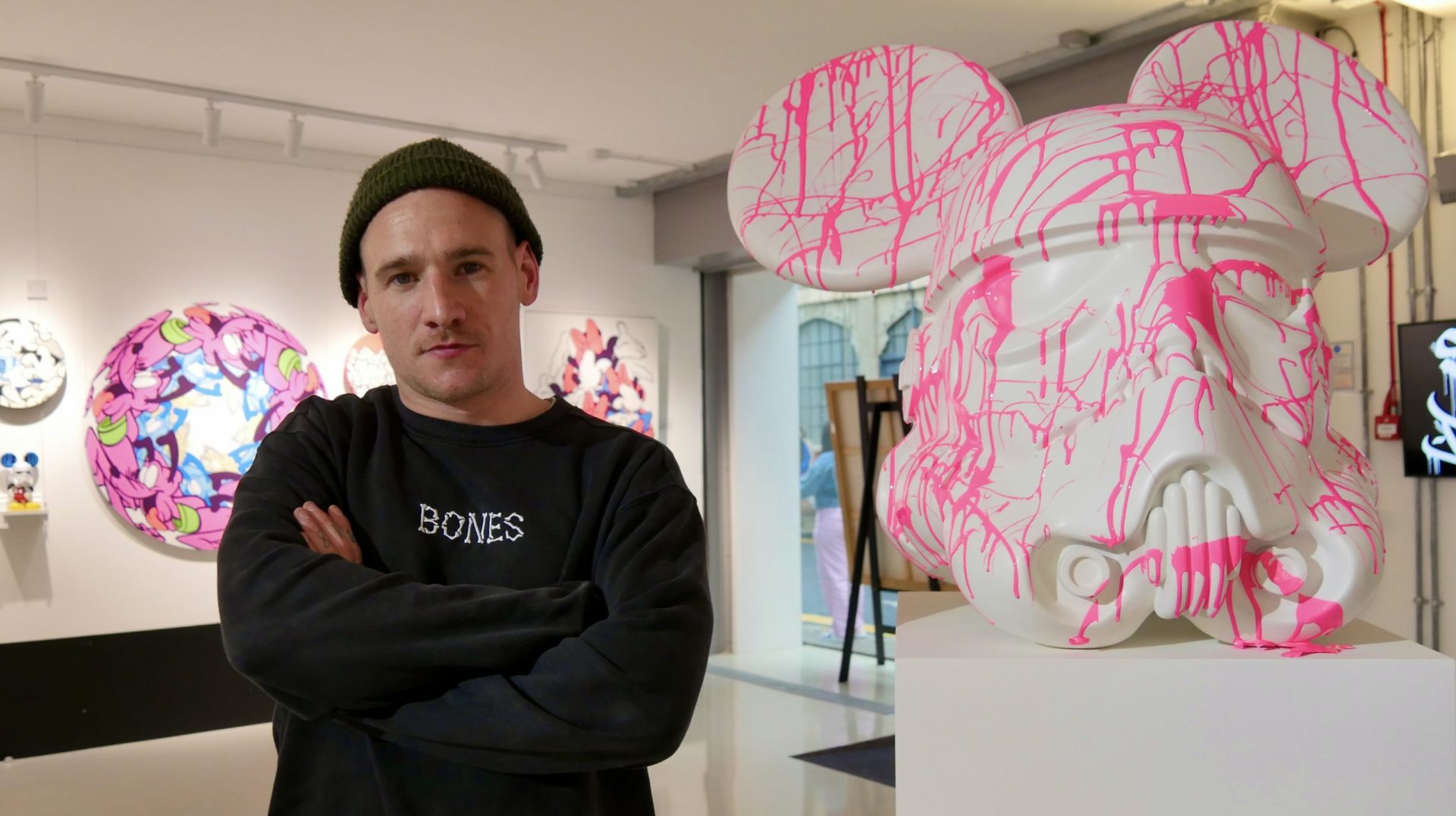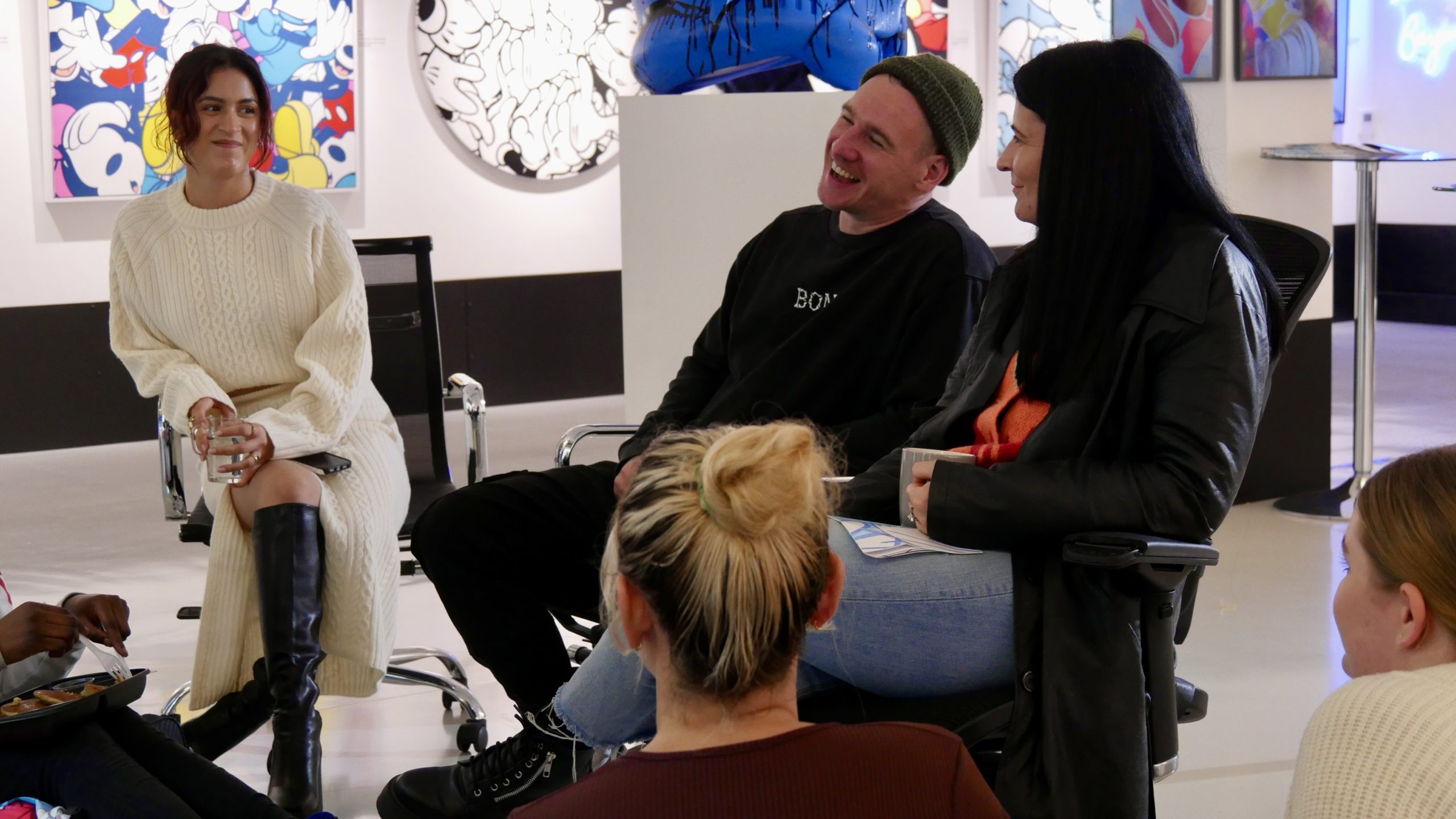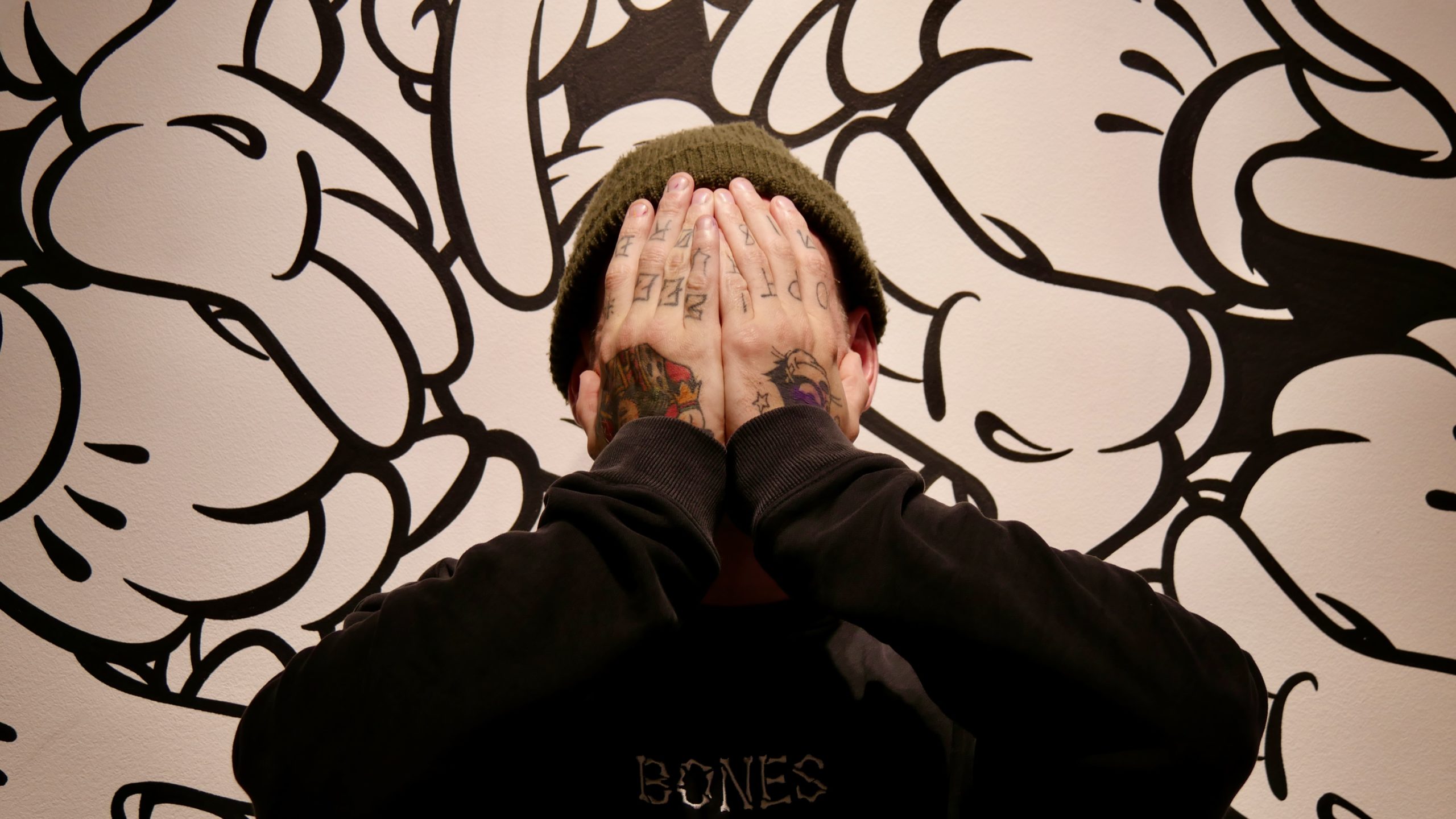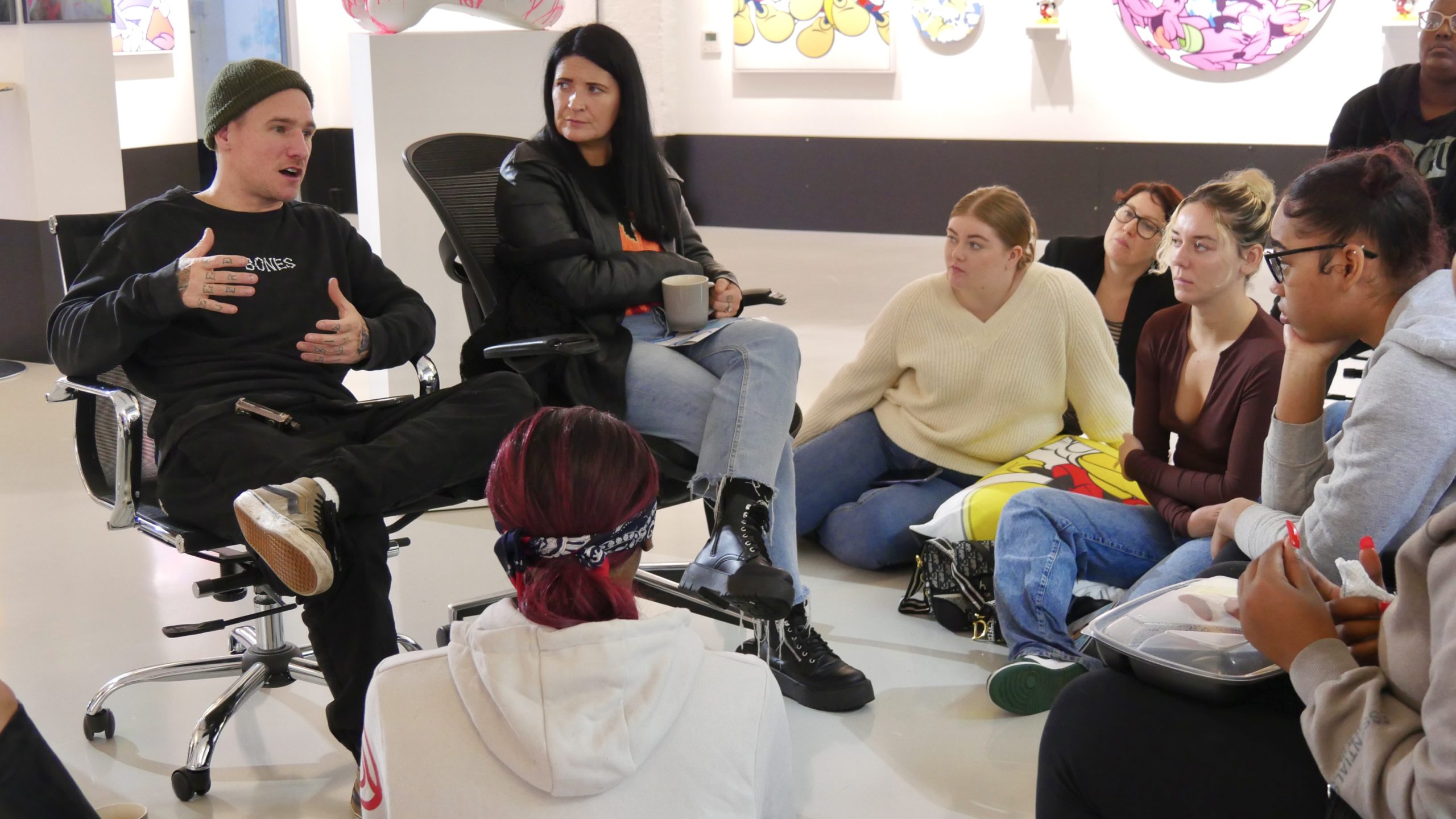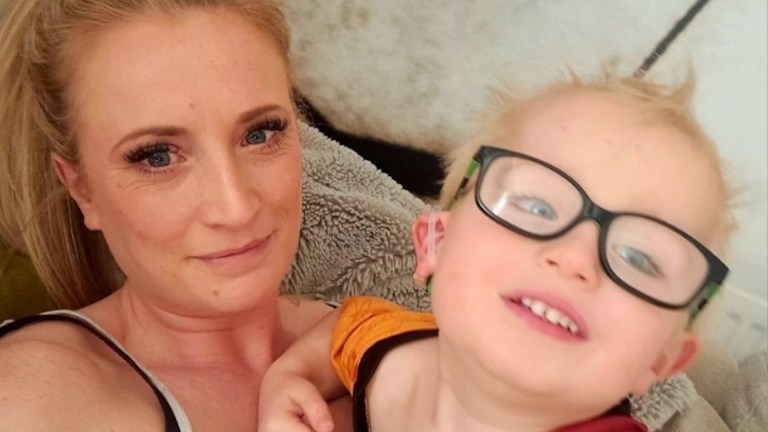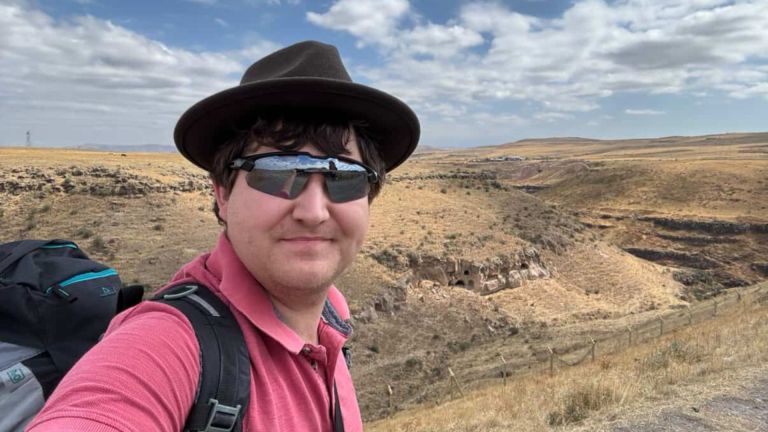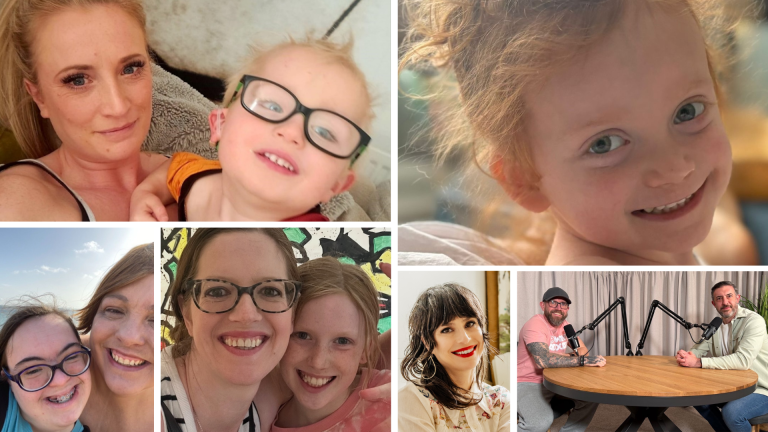Ed Worley, known better by his artist’s name Opake, was nine when he got drunk for the first time. He loved it. He stole bottles of wine and vodka, and then he found drugs and crack. He was psychotic for much of his twenties. He spent years on sofas and sleeping rough on the Piccadilly Line.
Opake is now a hugely successful artist, with hundreds of thousands of online followers and a new exhibition in London’s East End. He never escaped addiction, but he has channelled it into his art. He paints brightly-coloured, almost garish, pictures of cartoon characters over and over. They fold into each other, squashing each other, until there is no space left on the canvas. It epitomises the psychotic mind.
The Big Issue meets Opake on the day his exhibition opens, at the Quantus Gallery in Shoreditch. The small white space isn’t filled with journalists or art connoisseurs. Instead, Opake has invited young people with experience of homelessness to see his work, with the hope of inspiring them towards a better future.
- How many empty homes are there in the UK?
- This former Big Issue vendor has opened a shop to help disadvantaged young people access sport
“I felt hopeless for a long time,” Opake says. “I never talked. I would sit down with my mum and dad for hours and they’d been trying to get to the bottom of it. And instead of just saying: ‘I need fucking help here’, I would just sit in silence. It perpetuated it. It is hard to be vulnerable or just let people know that you need help and you need somebody to talk to. As soon as you speak, that’s fucking power. That’s golden.”
The artist, now 34 with a stable family life as a father of two, admits that he is anxious talking to the young people sitting in front of him. It takes them and him a little while to open up, but they are soon bouncing back and forth with questions and bringing their own creativity to the conversation. Each has been supported by charity Centrepoint.
Priscilla says she was 19 when she first experienced homelessness. She was street homeless for two weeks before she walked into the Centrepoint office, and they put her on a scheme called Nightstop. She was with a different family every day for a couple of weeks, and then she was put in a YMCA hostel.
